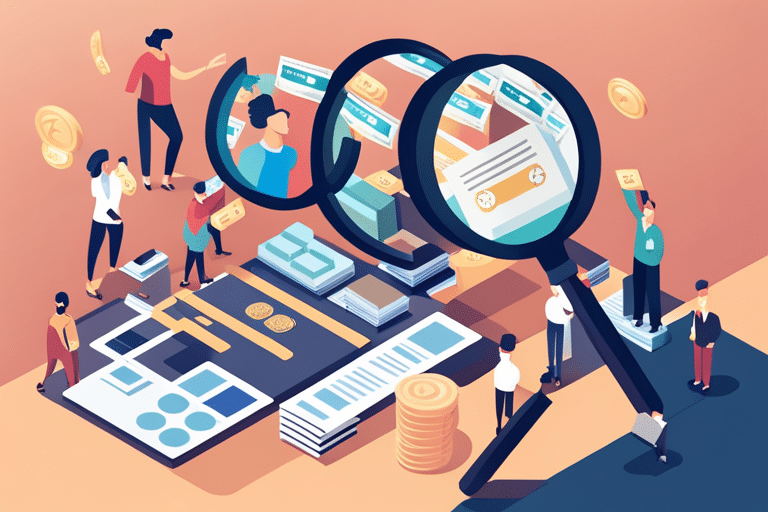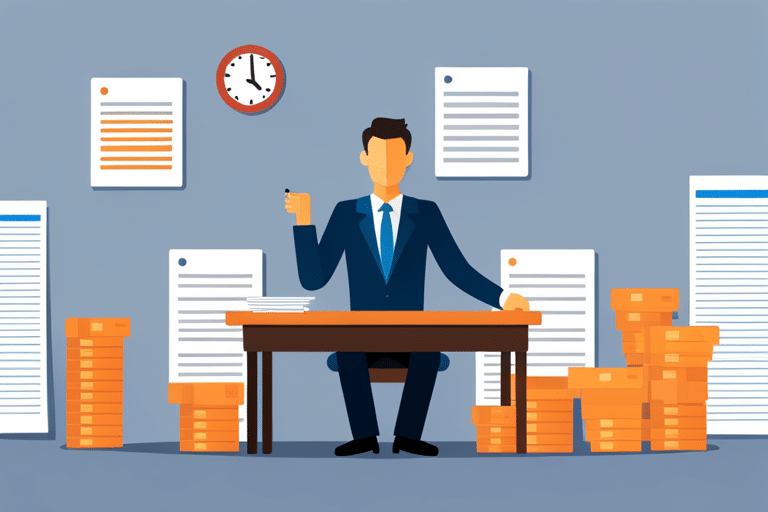Tackling Your Debtscation/ld+json”>{“@context”: “https://schema.org”, “@type”: “NewsArticle”, “headline”: “The Ultimate Guide to Managing Your Debt Like a Pro”, “image”: [“https://moneywisehb.com/wp-content/uploads/2023/08/Create_an_image_depi_20230823150441.png”], “datePublished”: “2023-08-23T15:06:54.667634”, “dateModified”: “2023-08-23T15:06:54.667634”, “author”: {“@type”: “Organization”, “name”: “MoneyWiseHB.com”, “url”: “https://moneywisehb.com/about/”}, “about”: {“@type”: “Thing”, “name”: “Debt”}, “mentions”: [{“@type”: “Thing”, “name”: “”Ultimate Guide to Managing Debt and Achieving Financial Freedom””}, {“@type”: “Thing”, “name”: “”Understanding the Role of Interest Rates in Debt Management””}, {“@type”: “Thing”, “name”: “”Exploring Various Debt Payment Strategies: Snowball Method”}, {“@type”: “Thing”, “name”: “Avalanche Method”}, {“@type”: “Thing”, “name”: “and Balance Transfer””}], “keywords”: “Debt Management, Financial Freedom, Interest Rates”, “educationalUse”: “Teaching professional debt management strategies.”}
Hey there, debt conqueror! Ready to take charge of your financial future like a pro? Look no further than this ultimate guide to managing your debt.
We’ll unravel the mysteries of understanding your debt, help you assess your financial situation, and show you how to create a budget that sticks.
With tips on prioritizing debts, exploring consolidation options, and even negotiating with creditors, we’ve got you covered.
Get ready to build a strong credit score and master long-term strategies for debt management. Let’s dive in!
Key Takeaways
- Understanding interest rates is crucial for effective debt management.
- Prioritize and focus on paying off debts with the highest interest rates first.
- Use budgeting apps or spreadsheets to track income and expenses and effectively manage debt.
- Explore debt payment strategies such as the snowball method, avalanche method, balance transfer, debt consolidation loan, and debt repayment plan.
Understanding Your Debt

Understanding your debt is crucial for effectively managing it and improving your financial situation. Debt can sometimes feel like a dark cloud looming over you, but fear not! With a little knowledge and some clever strategies, you can conquer that debt like a pro.
Let’s start by tackling the beast known as interest rates. Now, I know what you’re thinking – interest rates are about as exciting as watching paint dry. But trust me, understanding them is key to getting ahead. Interest rates determine how much extra money you’ll have to pay back on top of the original amount borrowed. So, when it comes time to repay your debts, focus on tackling the ones with the highest interest rates first. This way, you’ll save yourself some serious cash in the long run.
Speaking of repayment strategies, there are a few nifty tricks up our sleeves that can help speed up the process. One popular method is called the debt avalanche method. It involves prioritizing your debts based on their interest rates and paying off the one with the highest rate first while making minimum payments on all others. Once that’s done, move on to the next highest interest rate debt and so on until you’re debt-free.
Understanding your debt may seem overwhelming at first, but remember: Rome wasn’t built in a day (or without some strategic planning). So take a deep breath, arm yourself with knowledge about those pesky interest rates and repayment strategies, and get ready to kick that debt to the curb like a true financial master!
Assessing Your Financial Situation

So, you’ve finally decided to face the music and assess your financial situation. Good for you!
In this discussion, we’ll dive into some key points that will help you get a better understanding of where you stand financially.
We’ll talk about income and expenses (the yin and yang of your financial life), debt to income ratio (the ultimate balancing act), and the importance of budgeting and saving (because who doesn’t love a little extra dough in their pocket?).
Income and Expenses
To effectively manage your debt, you need to track your income and expenses. But hey, managing your debt doesn’t have to be all gloom and doom! Let’s jazz it up a bit and make it fun.
Here are three tips to help you master the art of tracking your expenses and increasing your income like a pro:
-
Get tech-savvy: Use budgeting apps or spreadsheets to keep tabs on every penny that leaves your pocket. Trust me, it’s easier than trying to remember if you bought that fancy latte last week.
-
Cut the unnecessary fluff: Take a long hard look at those monthly subscriptions and memberships. Do you really need both Netflix AND Hulu? Time to slim down and save some cash!
-
Hustle for extra dough: Explore side gigs or freelance work that align with your skills and passions. Who knows, maybe there’s an untapped talent waiting to bring in some serious moolah!
Debt to Income
Hey, it’s time to take a look at your debt-to-income ratio and see where you stand financially. But don’t worry, we’re gonna make this fun! Think of it as a game where you get to conquer your debts like a pro.
So, what is this fancy-sounding ratio? It’s simply the percentage of your monthly income that goes towards paying off your debts. To calculate it, add up all your monthly debt payments (like credit cards, loans, and mortgages) and divide that by your gross monthly income.
Ideally, you want this number to be low because it means you have more money left over for other things. If yours is too high, don’t panic! There are options like debt consolidation or even debt settlement that can help you get back on track.
So let’s tackle those debts head-on and then move on to the next step: budgeting and saving!
[Transition Sentence]
Now that we’ve got our debt-to-income ratio sorted out, let’s dive into the exciting world of budgeting and saving.
Budgeting and Saving
Now that you’ve conquered your debts, it’s time to focus on budgeting and saving for a brighter financial future. You’ve got the power to take control of your money! So, let’s dive into some saving strategies that will have you feeling like a financial ninja in no time:
-
Automate Your Savings: Set up automatic transfers from your checking account to a separate savings account. Out of sight, out of mind!
-
Create a Budget Battle Plan: Track your expenses, cut unnecessary costs (bye-bye daily latte), and allocate funds for savings.
-
Build an Emergency Fund Fortress: Aim to save three to six months’ worth of living expenses. It may seem daunting at first, but remember, slow and steady wins the race!
Creating a Budget and Sticking to It

Creating a budget is essential for managing your debt effectively, and sticking to it will help you achieve your financial goals. But let’s be honest, budgeting can sometimes feel like trying to solve a Rubik’s Cube blindfolded. Fear not, my friend! I’m here to guide you through the magical world of budgeting techniques and tracking expenses.
First things first, start by setting clear financial goals. Whether it’s paying off debt, saving for a dream vacation, or buying that fancy gadget you’ve been eyeing, having specific goals will help you stay motivated.
Now let’s dive into the fun part – creating your budget! Begin by tracking all your expenses for at least a month. Yes, even that daily coffee and Netflix subscription count! This way, you’ll get a clear picture of where your money is going and identify areas where you can cut back.
Once you have an idea of your spending habits, it’s time to allocate funds to different categories like groceries, bills, entertainment, and savings. Be realistic but also challenge yourself to save more each month.
To make budgeting easier (and dare I say enjoyable), use apps or spreadsheets that automatically categorize your expenses and provide visual representations of your progress.
Remember: sticking to a budget doesn’t mean depriving yourself entirely. Allow some wiggle room for treats and occasional splurges – just ensure they fit within the boundaries of your plan.
Prioritizing and Tackling Your Debts

So, you’ve got some debts to tackle, huh? Don’t worry, we’ve got your back!
In this discussion, we’ll dive into three key points: debt payment strategies, the dilemma between snowball and avalanche methods, and how to negotiate with those pesky creditors.
Get ready for some unconventional wisdom that will help you kick debt’s butt once and for all!
Debt Payment Strategies
To effectively manage your debt, you’ll want to consider different payment strategies that suit your financial situation. Don’t fret, we’ve got some creative and unconventional methods for you to try out! Here are three debt payment strategies that will have you mastering your debts like a pro:
-
Snowball Method: Start by paying off the smallest debt first, then work your way up to the larger ones. It’s like tackling a snowball rolling downhill, gaining momentum as you go!
-
Avalanche Method: Attack the high-interest debts first, saving yourself from drowning in interest payments. It’s all about taking control and conquering those pesky high rates!
-
Balance Transfer: Move your credit card balances to a new card with a lower interest rate or even an introductory 0% APR. Just make sure to read the fine print and avoid any hidden fees.
With these debt payoff methods and repayment plans in your arsenal, you’ll be on your way to financial freedom in no time!
Snowball Vs. Avalanche
When deciding between the snowball and avalanche methods, it’s important to consider your debt payoff goals and personal preferences.
The snowball method is like building a snowman – you start with the smallest debts and work your way up to the bigger ones. It may take longer to pay off your overall debt, but the small wins along the way can be motivating.
On the other hand, the avalanche method is like skiing down a steep slope – you tackle high-interest debts first, which saves you money in the long run. It requires discipline and patience, as you may not see immediate progress.
Ultimately, choose the method that aligns with your personality and financial goals. Remember, whether you’re rolling a snowball or causing an avalanche, what matters most is taking action towards becoming debt-free!
Negotiating With Creditors
Negotiating with creditors can be an effective way to reduce your debt burden and potentially secure more favorable repayment terms. It may seem daunting, but don’t worry! You’ve got this! Take a deep breath and let’s dive into the world of negotiation.
Here are some tips that will help you navigate through this process like a pro:
-
Be prepared: Gather all the necessary information about your debt, including outstanding balances, interest rates, and any documentation related to your financial situation.
-
Know your options: Familiarize yourself with different debt repayment options such as consolidation loans or credit counseling programs, so you can have a clear understanding of what might work best for you.
-
Be proactive: Reach out to your creditors and express your willingness to negotiate a settlement. Remember, they want their money back too!
Exploring Debt Consolidation Options

Considering debt consolidation options can help you simplify your repayment plan and potentially save money on interest. It’s like having a magic wand that waves away all the stress and confusion of managing multiple debts. Just imagine, no more juggling due dates or trying to make sense of different interest rates. Debt consolidation brings all your debts together into one neat package, making it easier for you to stay organized and focused on paying off what you owe.
Now, let’s talk about the benefits of debt consolidation. Firstly, it simplifies your life. Instead of dealing with numerous creditors, you only have one monthly payment to worry about. This not only saves you time but also helps avoid late fees and penalties. Secondly, debt consolidation can lower your interest rate, which means more money stays in your pocket instead of going towards hefty interest charges.
But wait! There are risks involved too. Debt consolidation may tempt you into taking on more debt because it feels like a fresh start. Make sure to address the underlying issues that got you into debt in the first place before consolidating. Also, be cautious of high-interest rates or fees associated with certain consolidation methods.
Negotiating With Creditors

Now that you’ve explored debt consolidation options, it’s time to dive into the exciting world of negotiating with creditors. Yes, I said exciting! Trust me, once you master this skill, you’ll feel like a superhero in your quest for financial freedom.
So, grab your cape and get ready for some serious debt-busting action. Here are some insider tips to help you navigate the tricky waters of creditor negotiations:
-
Be prepared: Arm yourself with knowledge about your debt settlement rights and the potential consequences. Knowledge is power!
-
Make a game plan: Create a budget and determine how much you can realistically offer as a settlement amount.
-
Pick up that phone: Don’t be afraid to dial those digits and start negotiating like a boss.
Now, let’s explore some handy debt relief programs to assist you on your journey:
-
Debt management plans: These programs allow you to consolidate your debts into one affordable monthly payment.
-
Debt settlement: This option involves negotiating with creditors to settle your debts for less than what is owed.
-
Credit counseling: These programs provide guidance on managing finances and developing strategies for debt repayment.
Building a Strong Credit Score

Building a strong credit score is essential for obtaining favorable loan terms and interest rates. But hey, don’t worry! Improving your creditworthiness doesn’t have to be as intimidating as it sounds. Let’s dive into some creative and unconventional credit utilization strategies that will help you boost that three-digit number.
First things first, keep your credit card balances low. I know, it’s tempting to max out those shiny pieces of plastic, but trust me, it won’t do your credit score any favors. Instead, aim to use no more than 30% of your available credit limit. So if you have a $1,000 limit on your card, try to keep the balance below $300.
Another tip is to pay off your balances in full each month. This shows lenders that you’re responsible with your money and can handle debt responsibly. Plus, it saves you from paying those pesky interest charges.
Lastly, mix up your credit types. Having a diverse range of accounts such as credit cards, loans, and mortgages can actually improve your score by demonstrating that you can handle different types of debt.
Long-term Strategies for Debt Management

To effectively manage your debt in the long term, it’s important to prioritize paying off high-interest loans first. Sure, it’s tempting to ignore those pesky credit card bills and focus on more exciting things like planning your next vacation or binge-watching your favorite show. But trust me, tackling your debt head-on will save you from drowning in a sea of interest payments.
Here are some strategies to help you become a debt payoff master:
-
Create a budget: Take control of your finances by tracking your income and expenses. This will give you a clear picture of where your money is going and help you identify areas where you can cut back.
-
Snowball method: Start by paying off the smallest debts first while making minimum payments on the rest. Once that small debt is gone, roll that payment into the next smallest debt until they’re all paid off.
-
Credit counseling: Consider seeking guidance from a credit counselor who can help you create a personalized plan based on your financial situation. They can negotiate with creditors to lower interest rates or monthly payments.
Frequently Asked Questions
How Can I Increase My Income to Help Manage My Debt More Effectively?
Looking for ways to increase your income and manage your debt like a pro? Consider side hustles or exploring better job opportunities. Get creative and think outside the box! You’ve got this! #DebtFreeJourney
Is It Possible to Negotiate a Lower Interest Rate With My Creditors?
Sure, you can totally negotiate a lower interest rate with your creditors! Get ready to work those negotiating strategies and explore alternative options. It’s time to take control of your debt like a pro!
What Are Some Common Mistakes People Make When Trying to Pay off Their Debts?
Common mistakes people make when paying off debt include not creating a budget, ignoring high-interest debts, and not seeking help. Effective strategies involve budgeting, prioritizing high-interest debts, and exploring options like debt consolidation or negotiation.
Are There Any Government Programs or Resources Available to Help Individuals With Their Debt Management?
Yes, there are government programs and resources available to help you with debt management. They offer alternative solutions to tackle your debts like a pro. Get ready to conquer that mountain of debt!
How Long Does It Typically Take to Pay off Significant Amounts of Debt?
On average, it can take several years to pay off significant amounts of debt. However, with smart strategies like budgeting, increasing your income, and prioritizing high-interest debts, you can pay off debt faster than you think!
Conclusion
Congratulations, you debt-demolishing wizard! By following this ultimate guide, you’ve become a master at managing your debts like a pro.
You’ve embraced the art of budgeting and prioritizing your payments with finesse.
You’ve explored clever consolidation options and even tangoed with those pesky creditors.
Your credit score is now strong enough to make Hercules jealous.
And guess what? This isn’t just about managing your debts; it’s about taking control of your financial destiny.
So keep up the great work, and soon enough, you’ll be sipping margaritas on a debt-free beach!
Cheers to your newfound financial freedom!

